WORKS
WORKS
FREIHEIT FREIHEIT
日本の東西の文化が合流する愛知県名古屋市。さまざまな人、物が集まり独自の発展を遂げてきた。その中でも近年開発が著しい緑区徳重。中心部へのアクセスも良く緑豊かなこの土地にFREIHEITは建てられた。
Nagoya City in Aichi Prefecture is where the cultures of Japan's East and West meet. Nagoya City has developed in its own unique way, attracting a variety of people and goods. Among these, Tokushige, Midori-ku, has seen remarkable development in recent years. FREIHEIT was built on this land with easy access to the city center and abundant greenery.
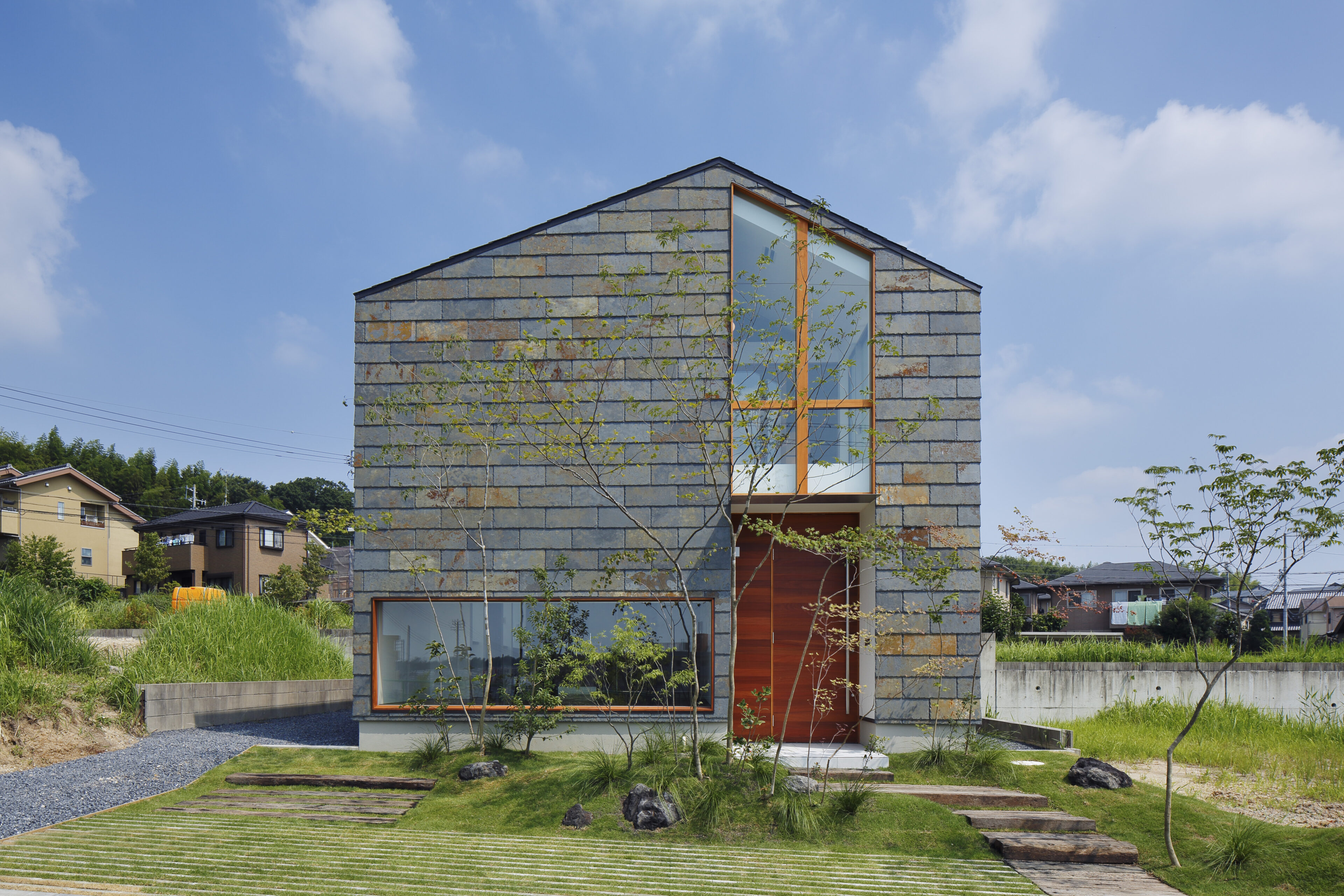
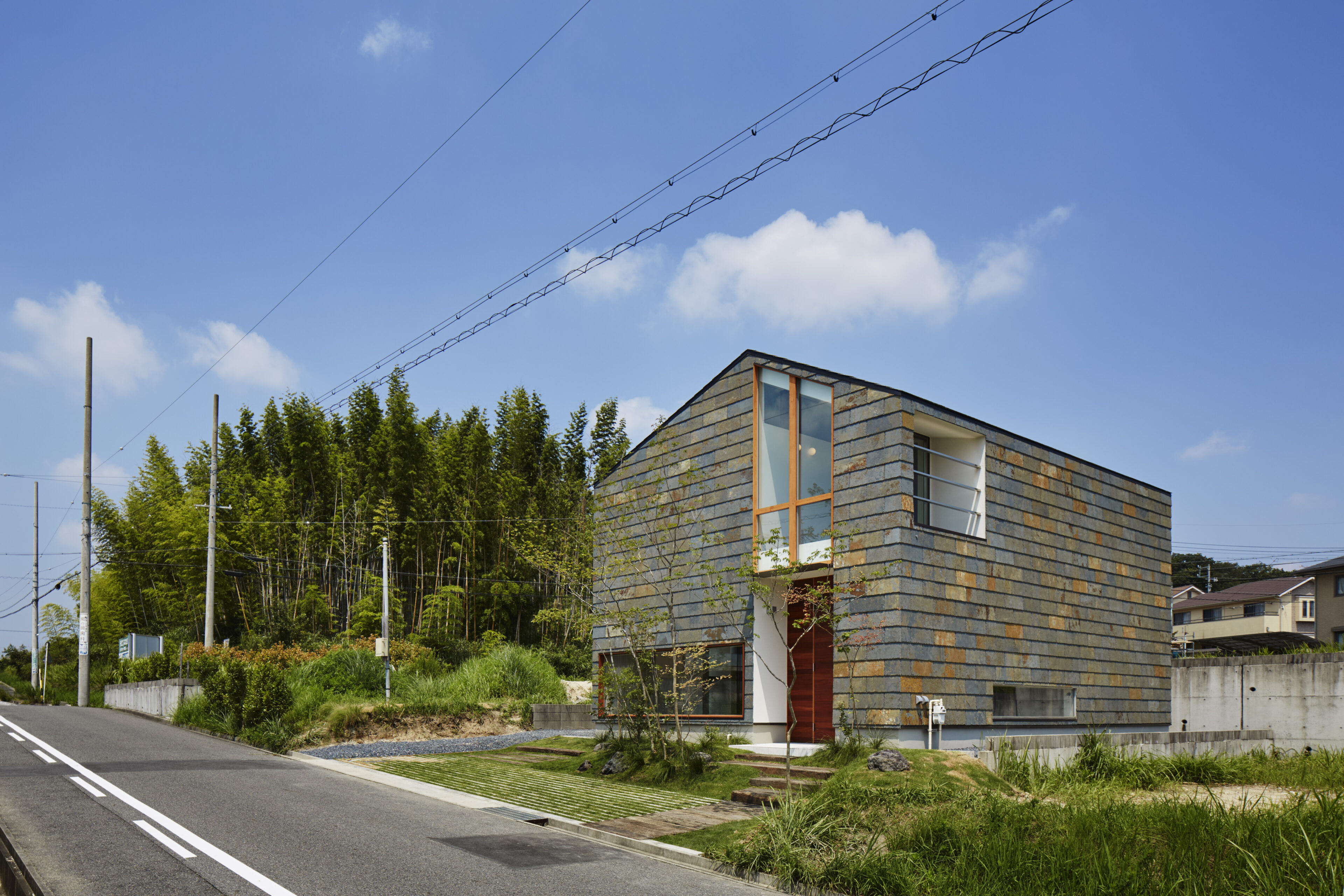
100年先に暮らす家族にも、「住み続けたい」と想われる、デザインと素材を。’というコンセプトを基にこの住宅は設計された。100年の歳月に負けない耐久性能があっても、丈夫なだけでは、その住宅が受け継がれていくことはない。住宅は人が住まうことによって命を宿すものであり、「住みたい」という想いを住人が抱いてこそ初めて受け継がれていくものである。流行に左右されないデザインと、年を経ることで益々その質感を美しく深化させる素材を用いることで一つの答えを導き出した。
FREIHEIT was designed and built based on the concept of "design and materials that will make families who will live here 100 years from now want to continue to live here. Even if the house is durable enough to withstand 100 years, it is not enough that it is strong enough to be handed down from generation to generation. A house takes on life when it is inhabited, and it is only when the inhabitants have the desire to live in it that it can be passed on to future generations. We have found the answer in a design that is not influenced by trends, and in the use of materials whose textures become more beautiful and deeper with age.
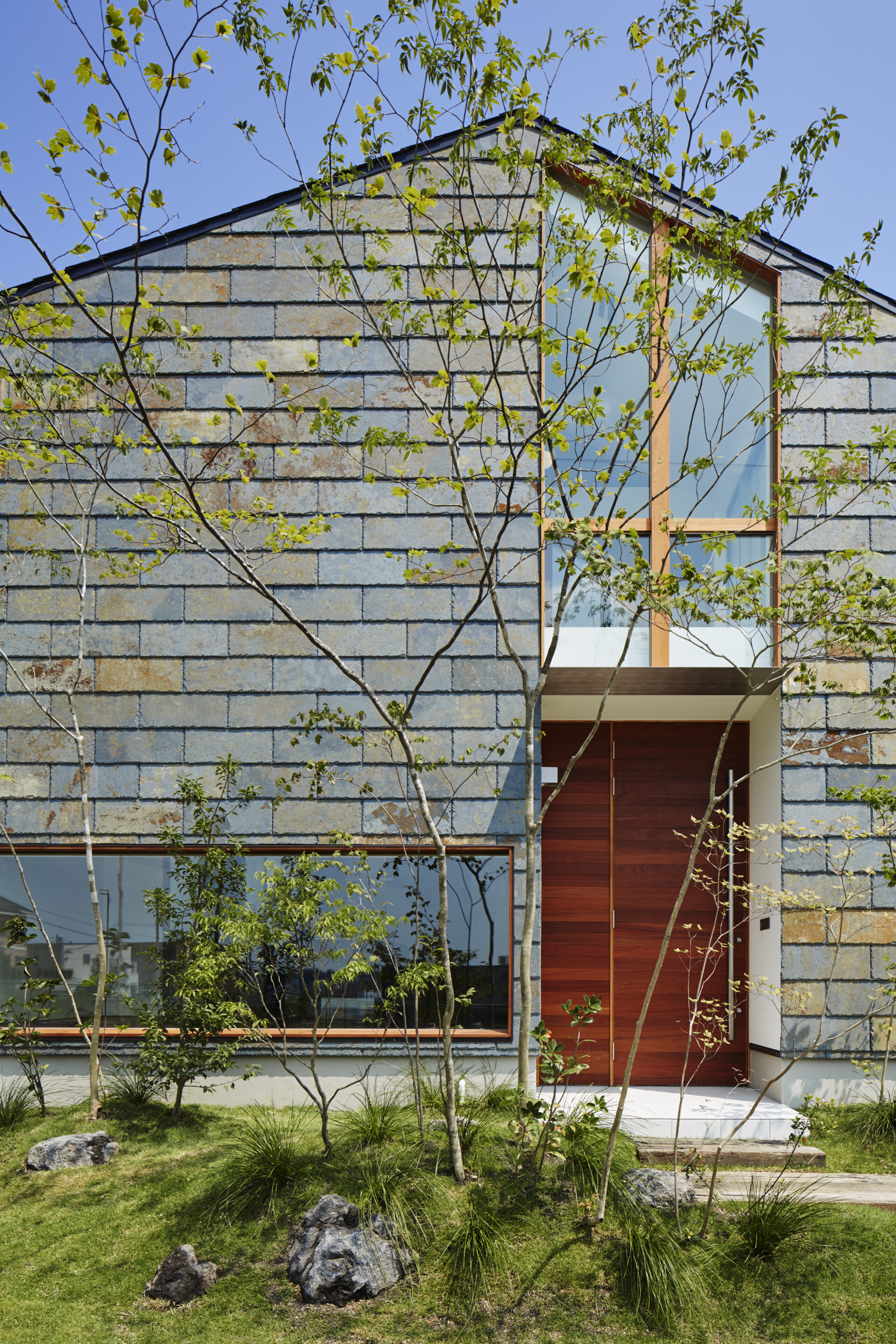
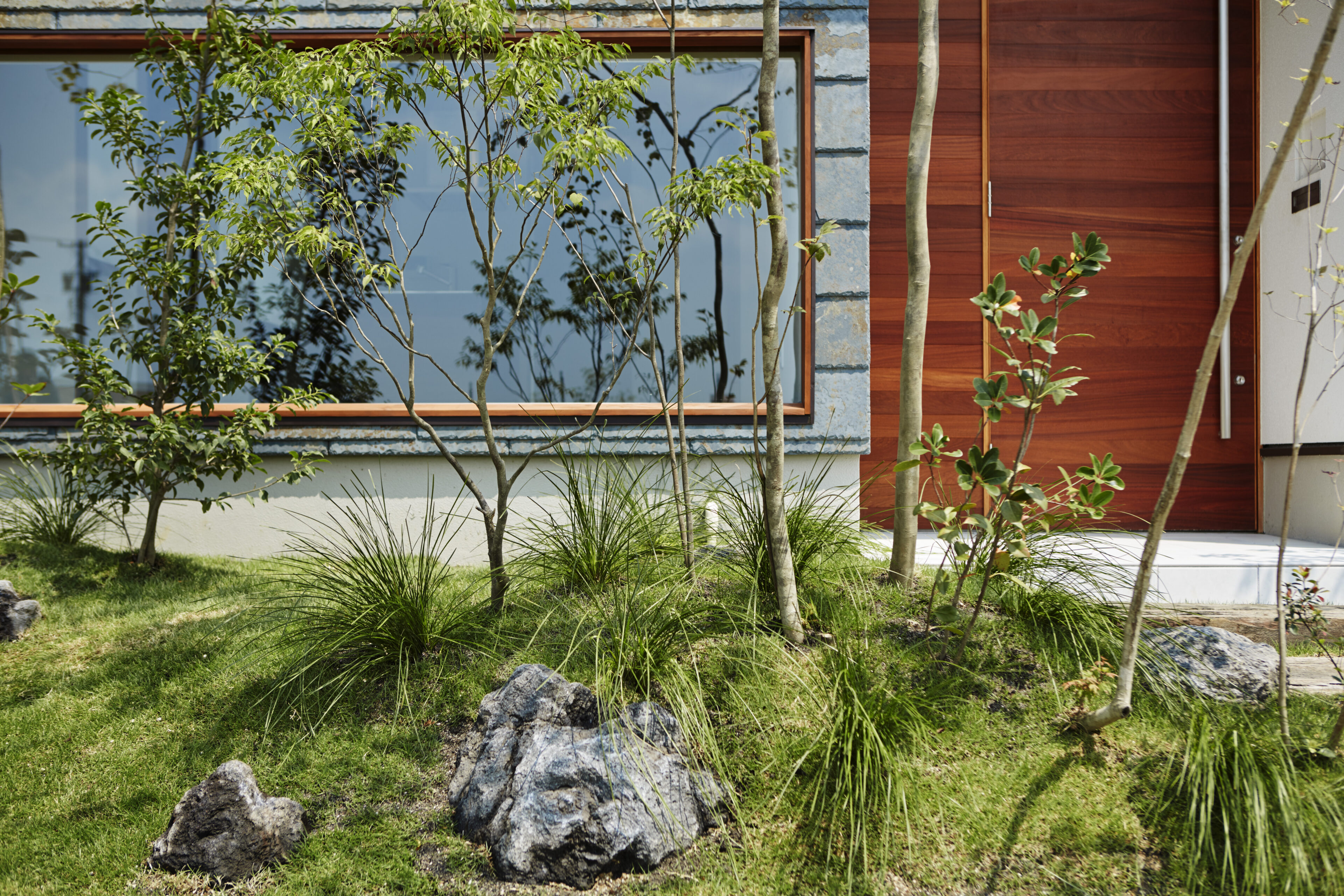
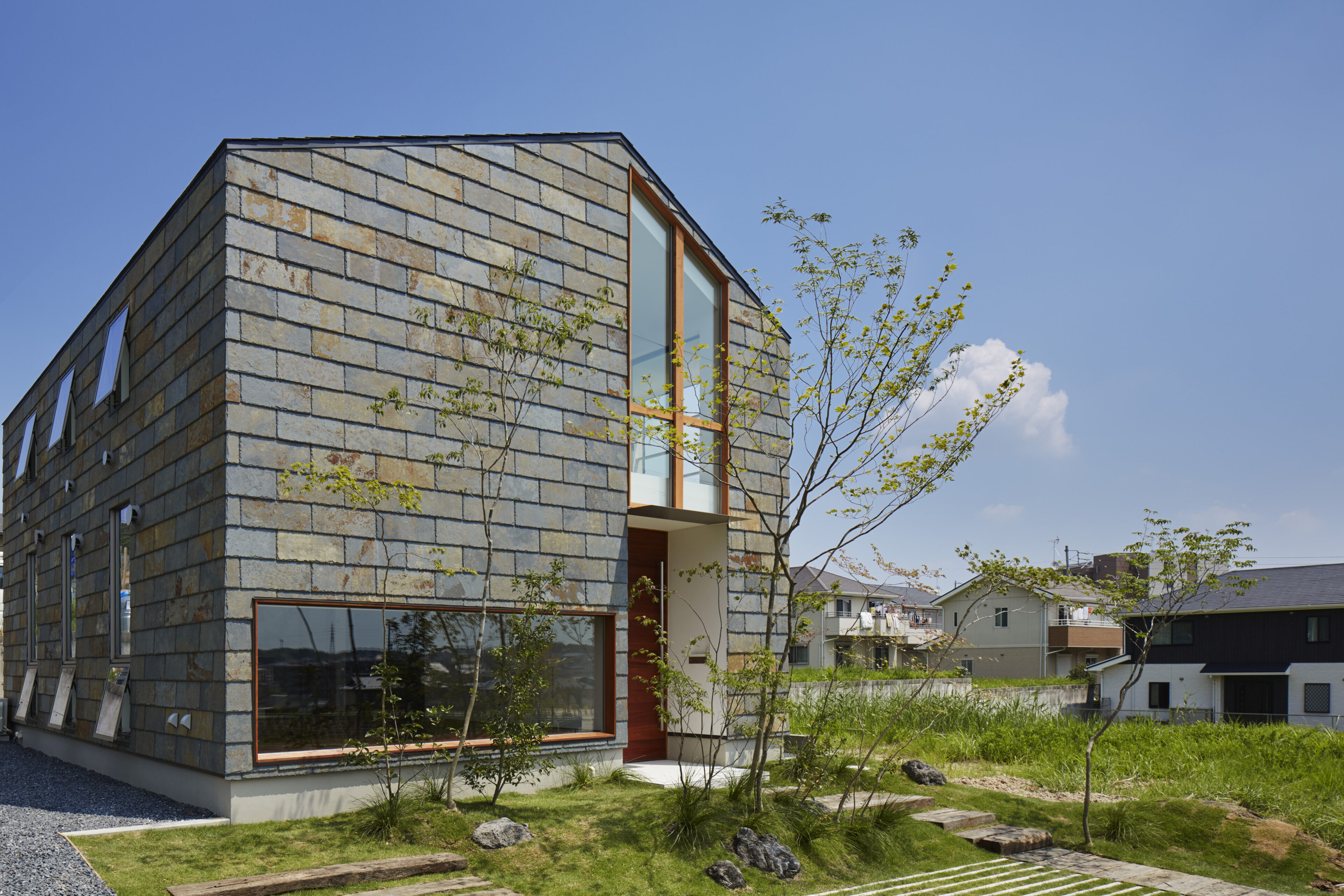
外観はどの時代にも受け入れられるよう恒久的であることが求められ、シンプルさ、力強さ、安定感が必要とされる。正面に配置した開口部はそれらを象徴的に表現している。屋根、外壁材に使用している天然スレートの数億年を経た岩石の質感はまさに恒久的であり、劣化・退色しないと同時にデザイン的な力強さと安定感を建物に与えている。
床材には南アフリカ原産のアフゼリアを使用している。反りや割れ、ささくれの少ないこの無垢材は、手触りがよく、素足歩行にも適している。古来より自然の恩恵を受けて生きてきた人間にとって、自然物に対して抱く感動は普遍的かつ恒久的なものである。
自然素材の「美しい」「安心する」「落ち着ける」という快適要素は健やかな日常を送るための支えとなり、その恩恵は年月を経てますます大きくなっていくのである。
The exterior of the building must be permanent so that it can be accepted in any age, and it must have a sense of simplicity, strength, and stability. The openings in the front of the building symbolize these qualities. The natural slate used for the roof and exterior walls has the texture of a rock that is hundreds of millions of years old and is truly permanent.
The flooring material is Afzelia, which is native to South Africa. This solid wood, with little warping, splitting, or cracking, is pleasant to the touch and suitable for barefoot walking. Since ancient times, humans have lived by nature's bounty, and the excitement we feel for natural objects is universal and permanent.
The comforting elements of natural materials, such as "beauty," "peace of mind," and "calmness," support us in our healthy daily lives, and the benefits of these elements are becoming greater and greater as time goes by. The benefits of natural materials will continue to grow as time goes by.
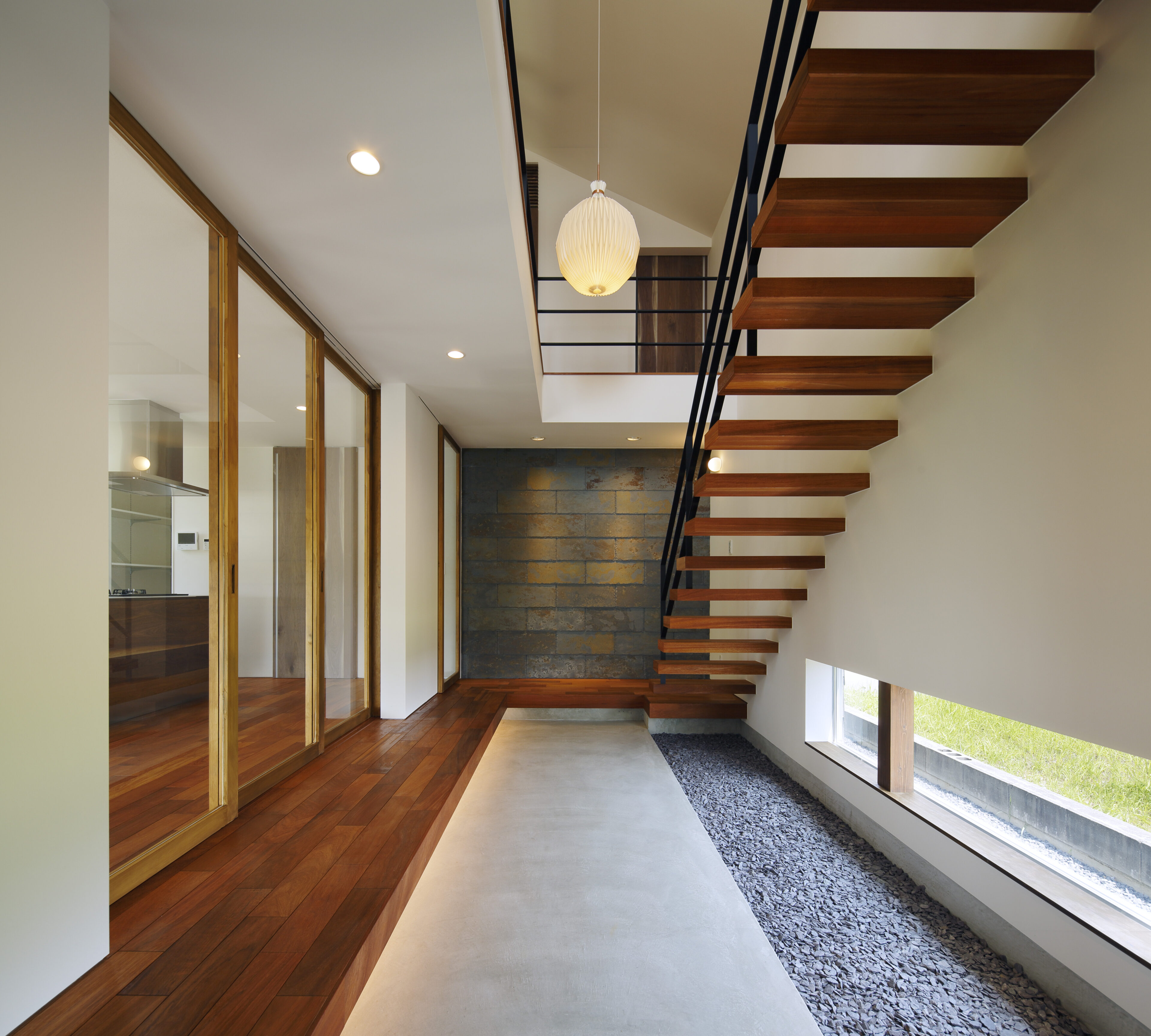
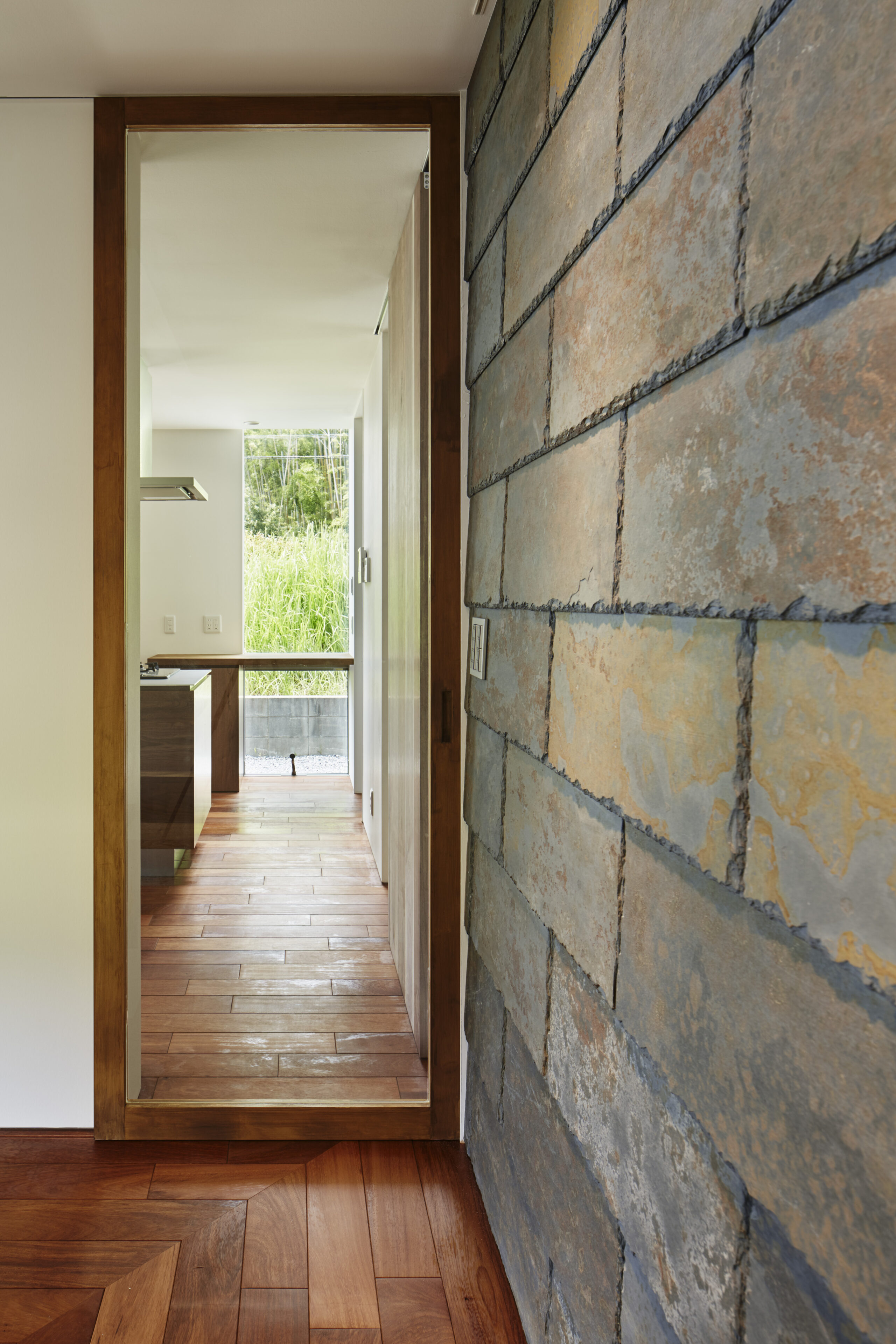

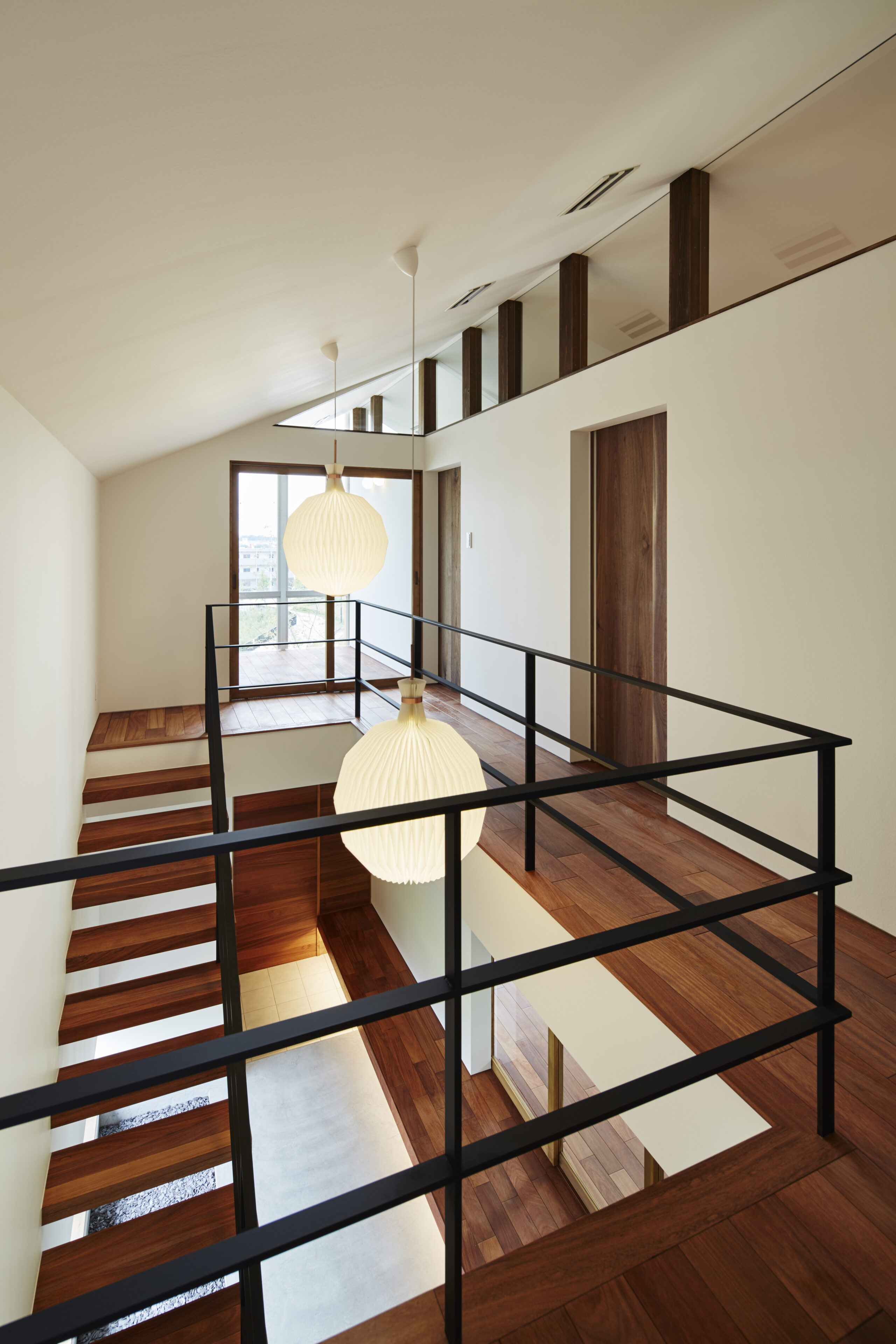
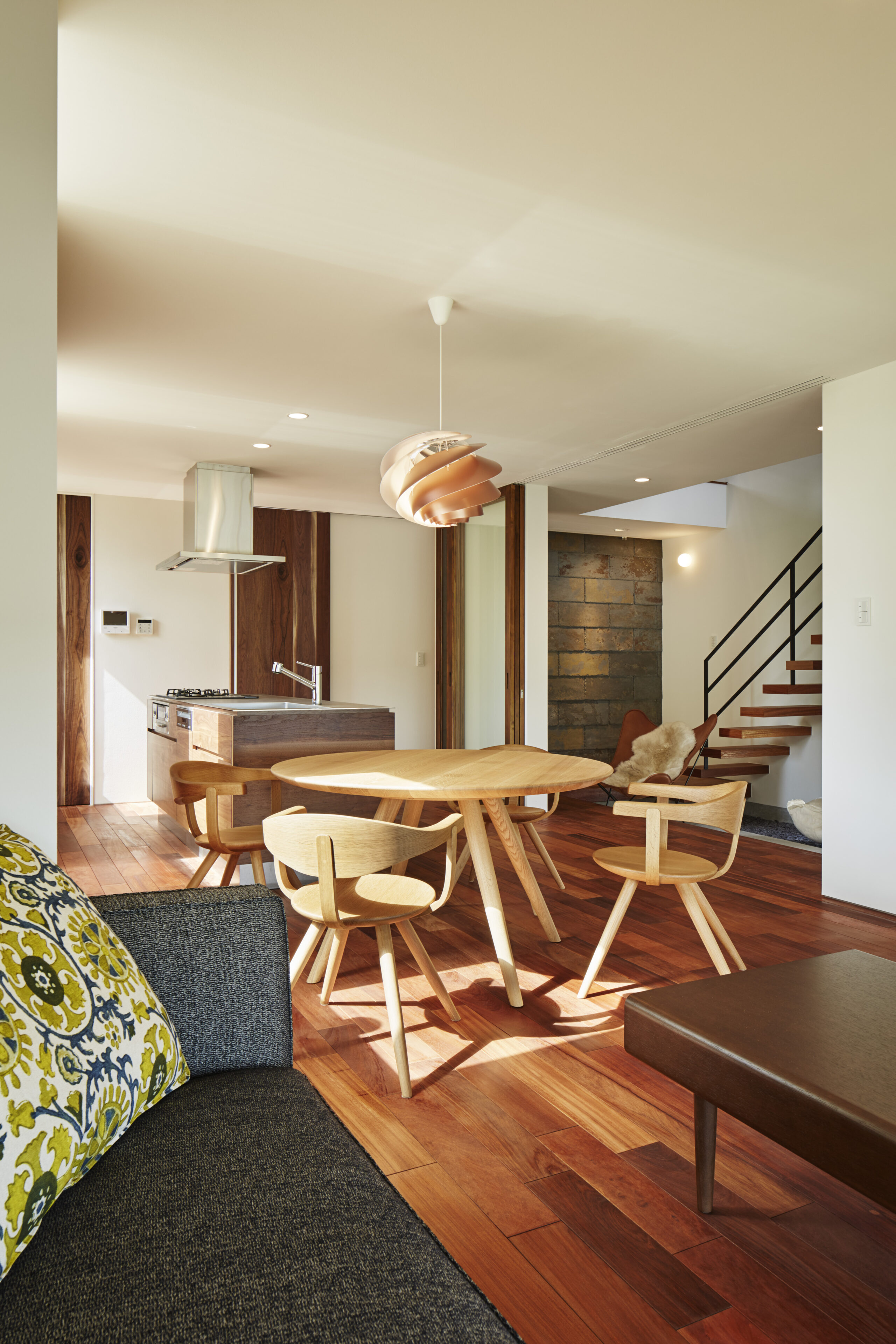
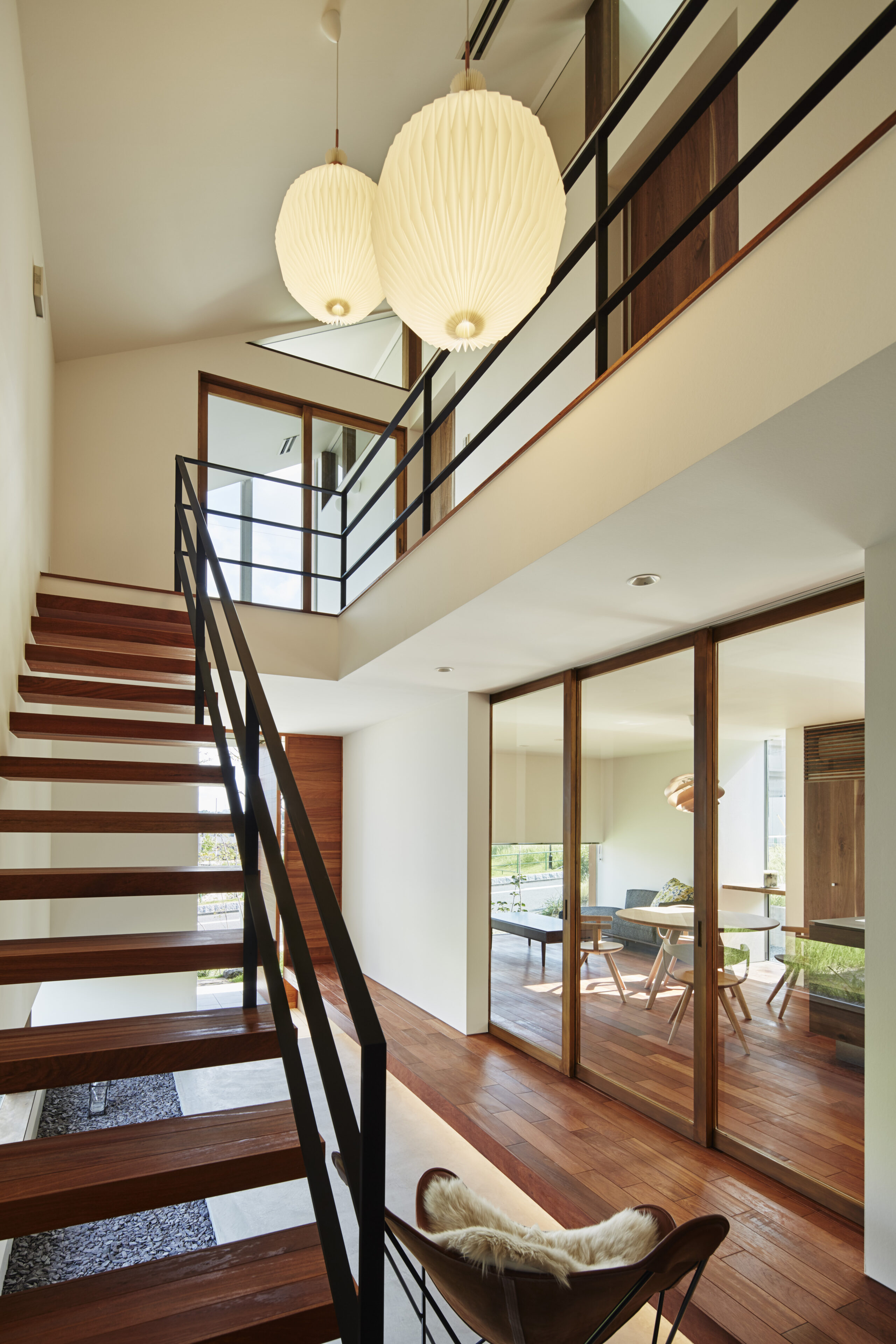
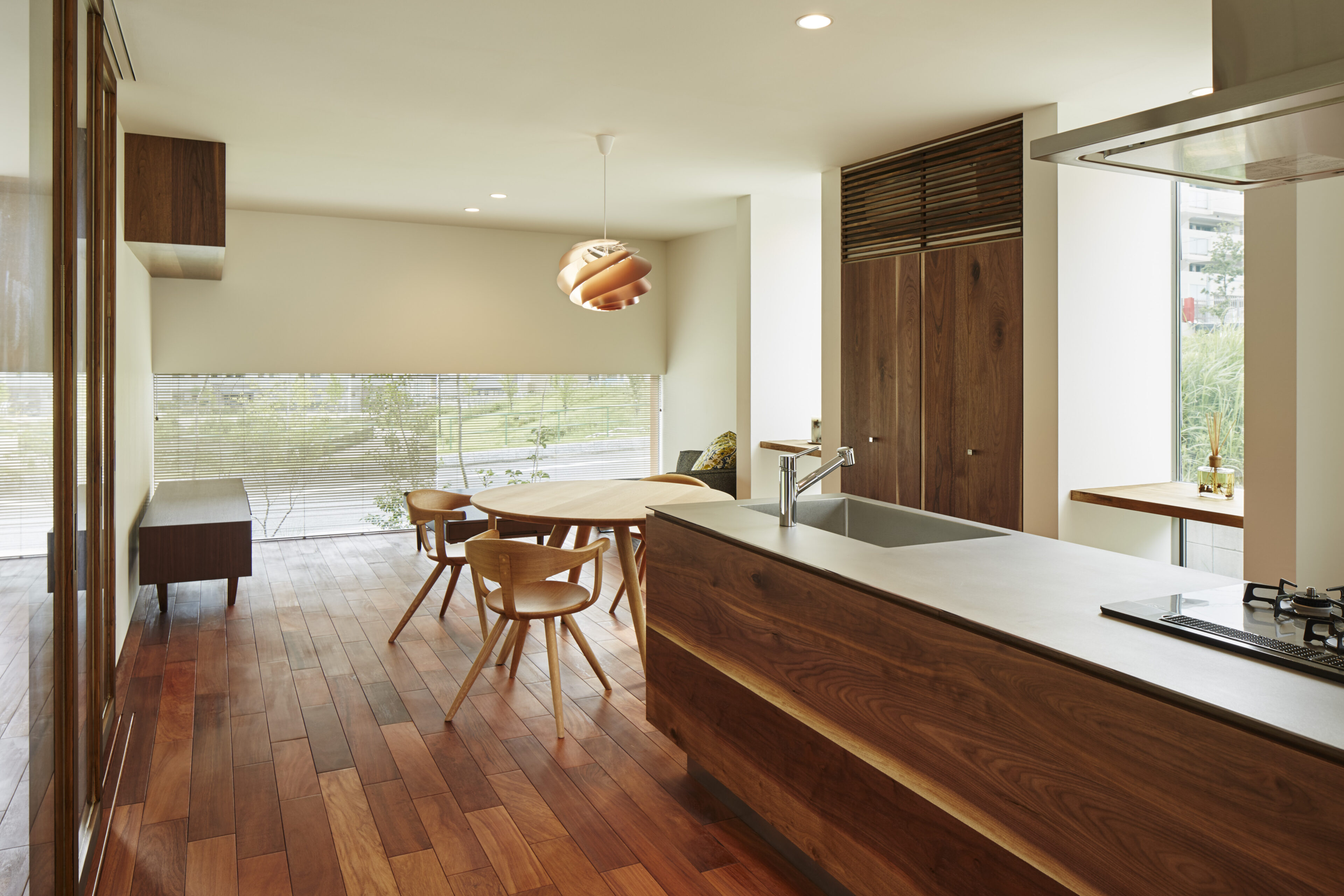
「FREIHEIT(ドイツ語:自由)」という名前は、この家を自由にカスタマイズしてほしいという想いを込めて名付けた。そのため、間取りについては家族構成の特定はせずできるだけ自由度の高い平面計画とし、居室間の境界を曖昧にすることで空間の「抜け」を意識したデザインにしている。
The name "FREIHEIT" (German for "freedom") was chosen with the hope that the house could be freely customized. Therefore, the floor plan was designed to be as flexible as possible without specifying the family structure, and the boundaries between rooms were made ambiguous to create a sense of spatial "openness.
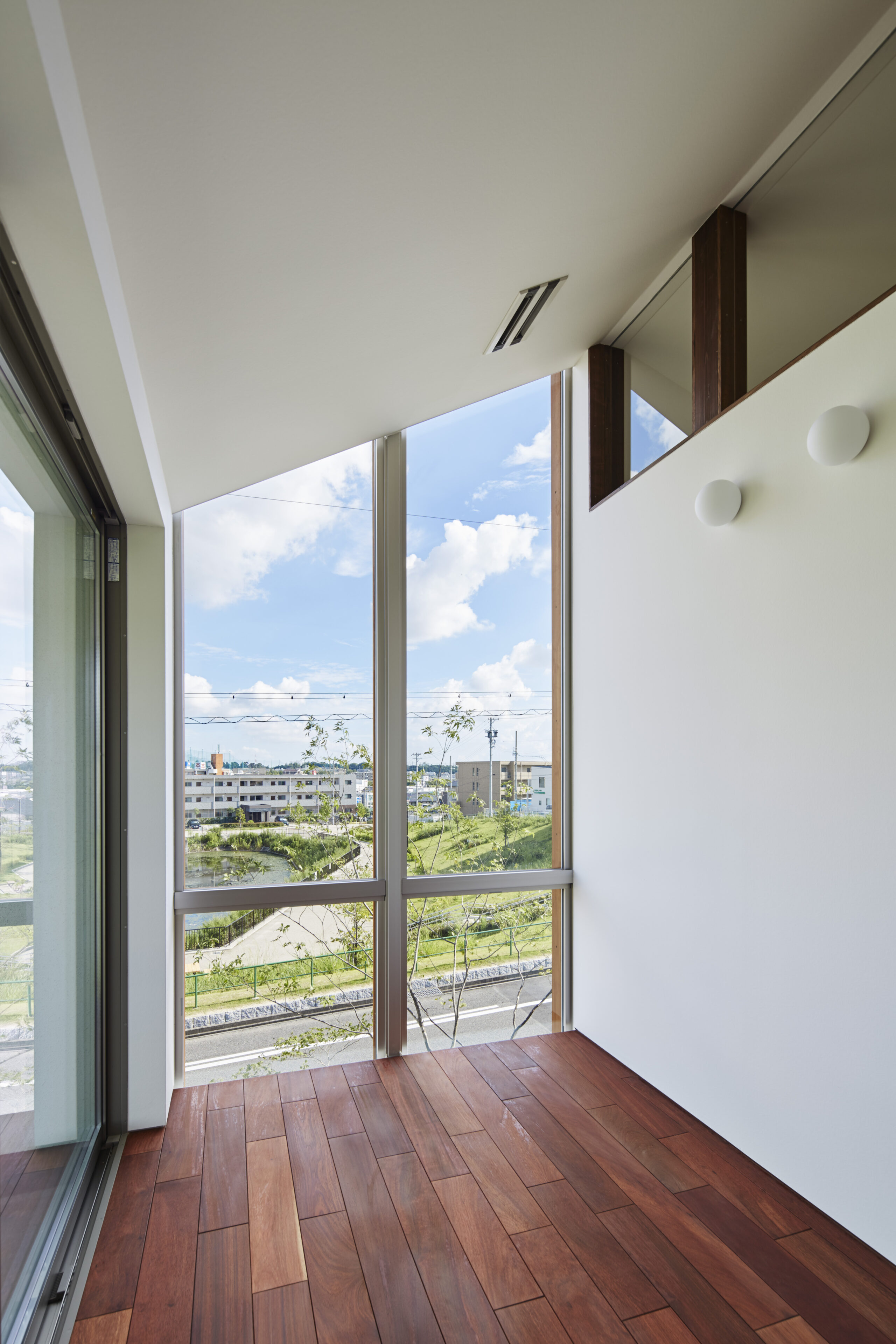
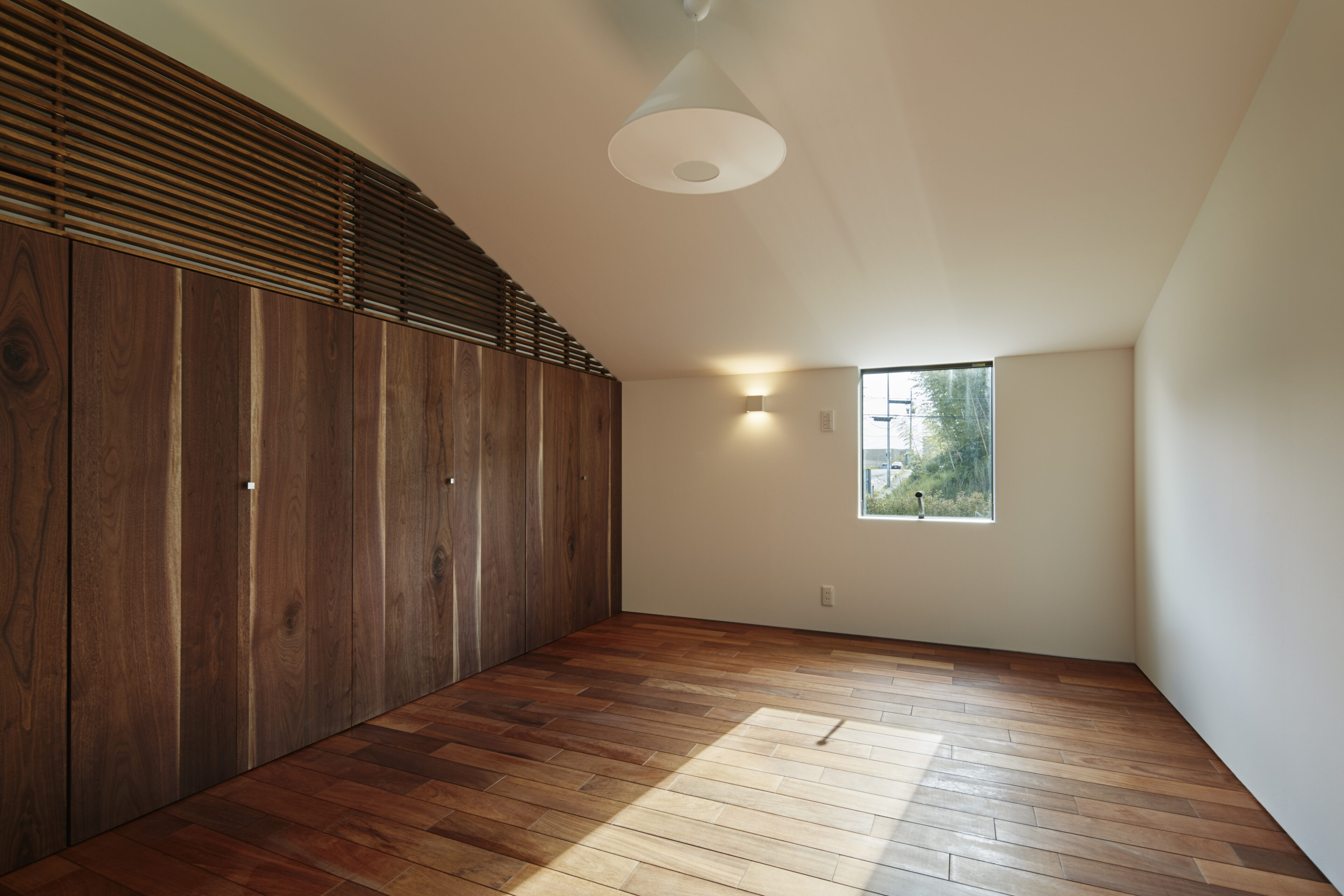
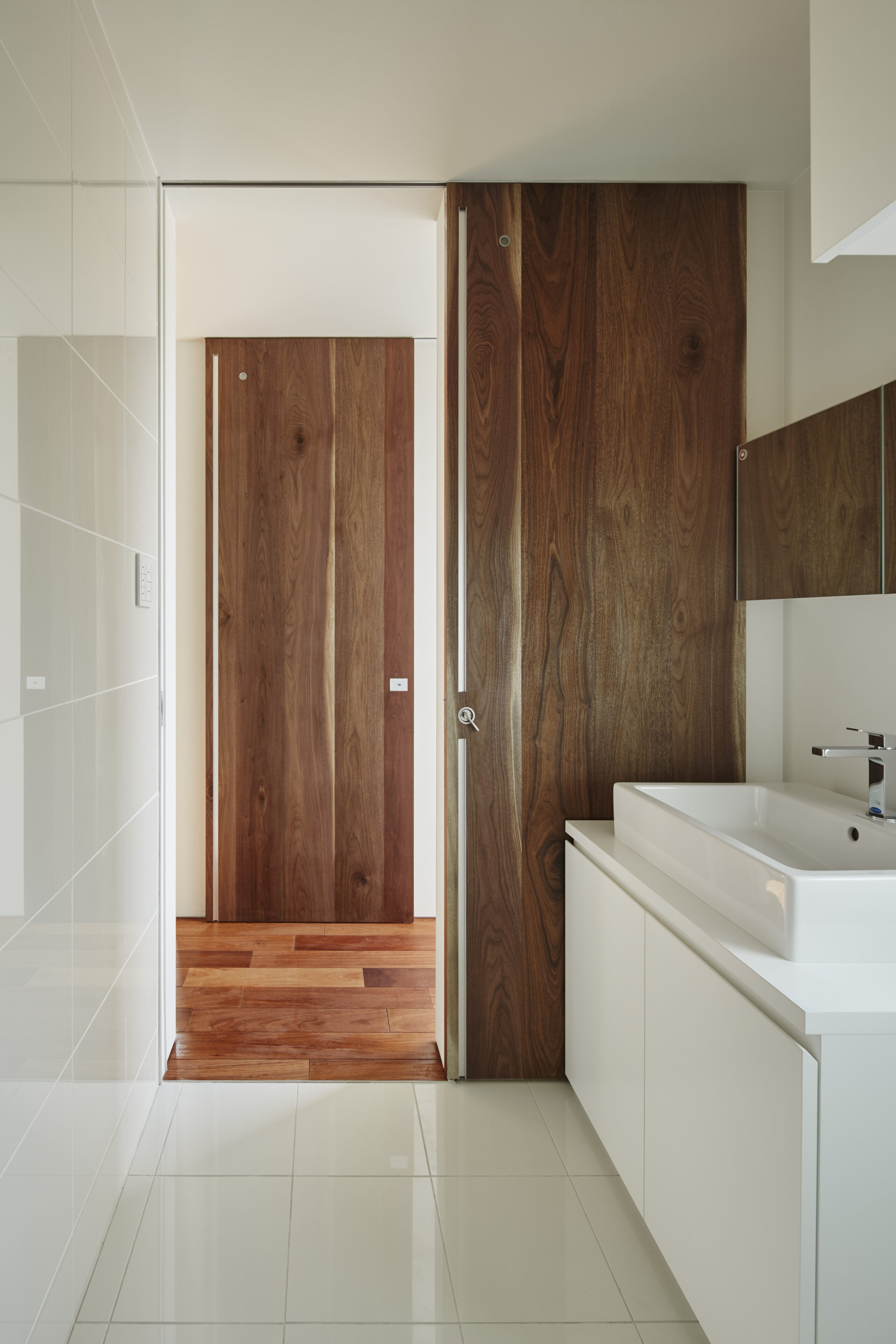
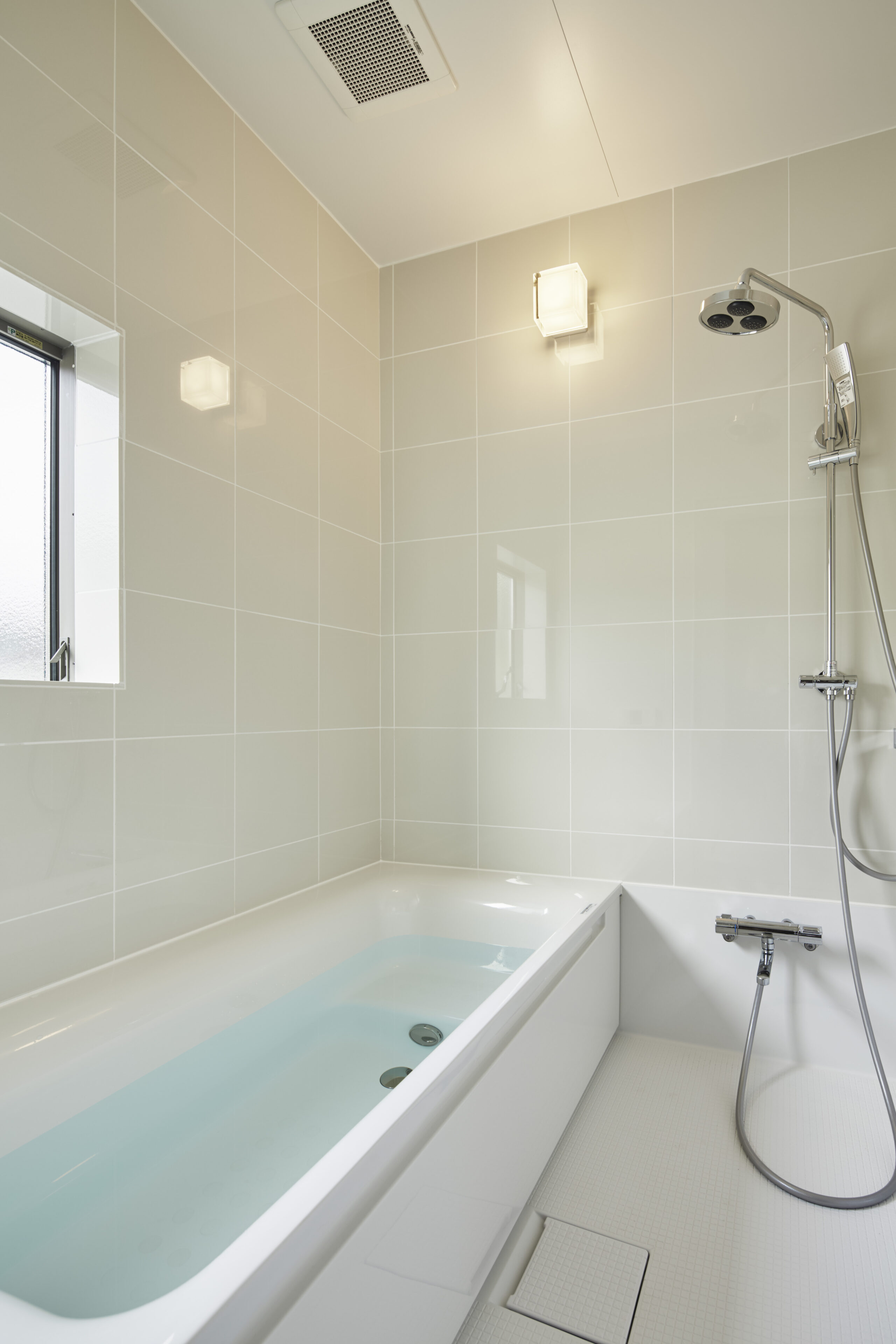
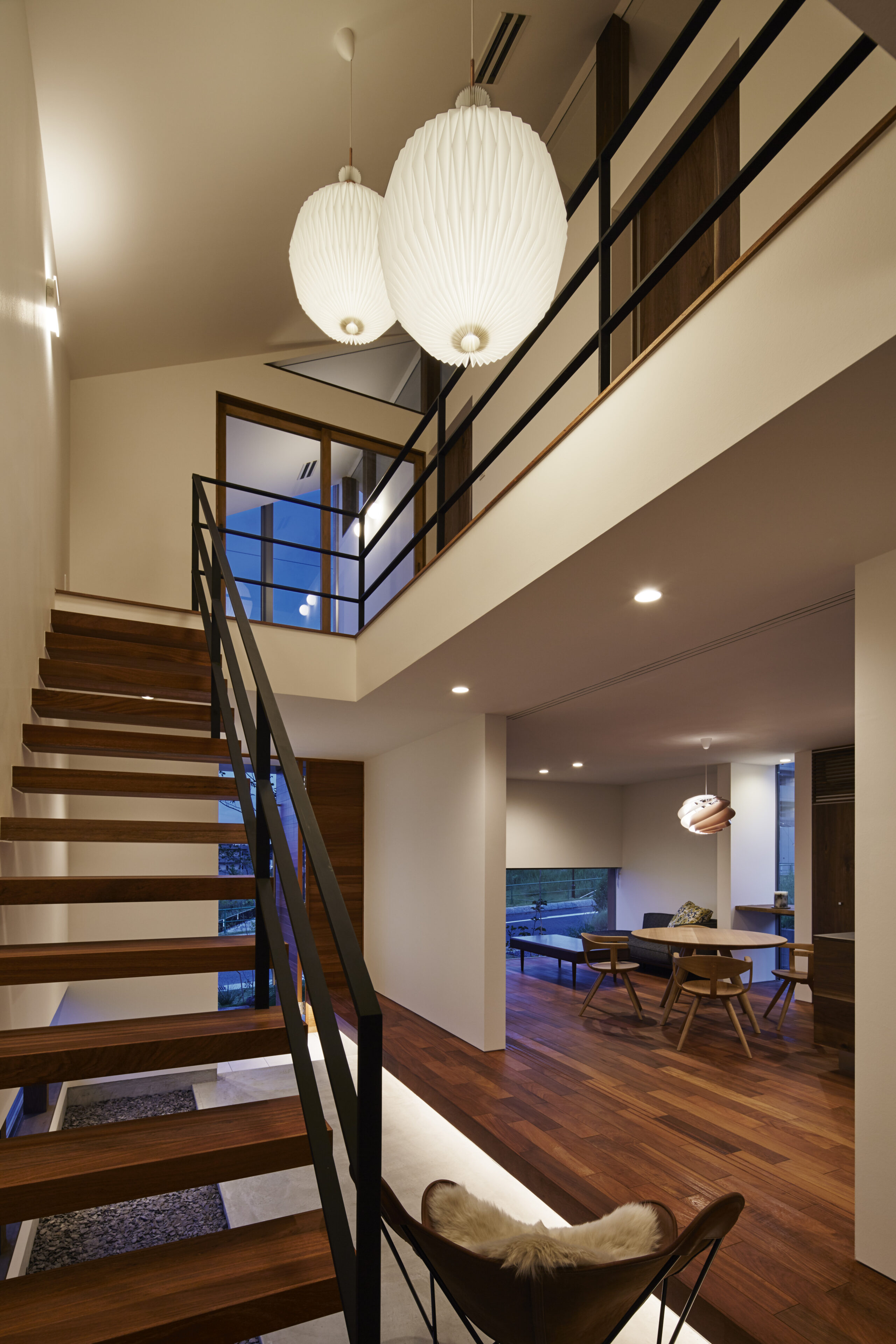
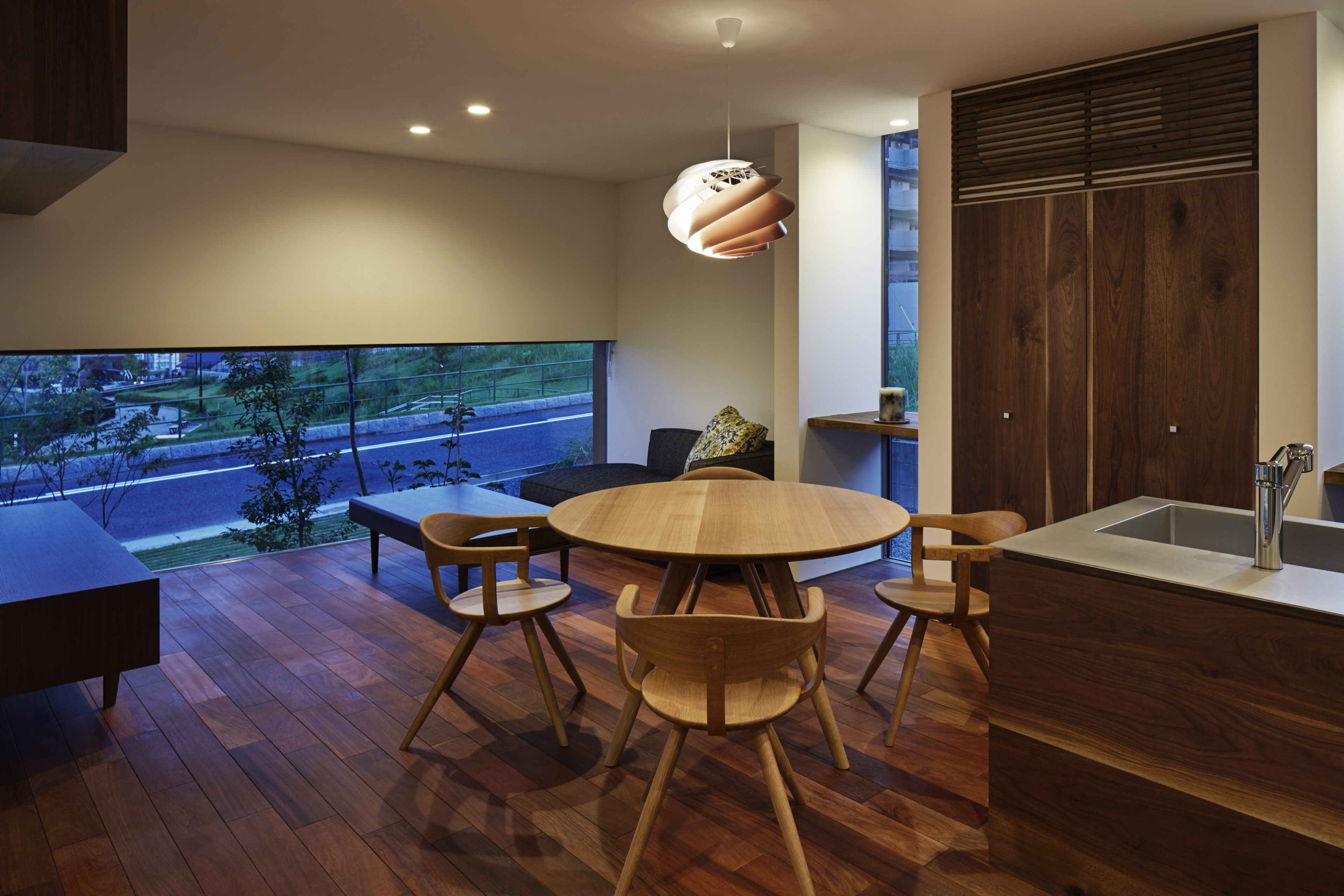
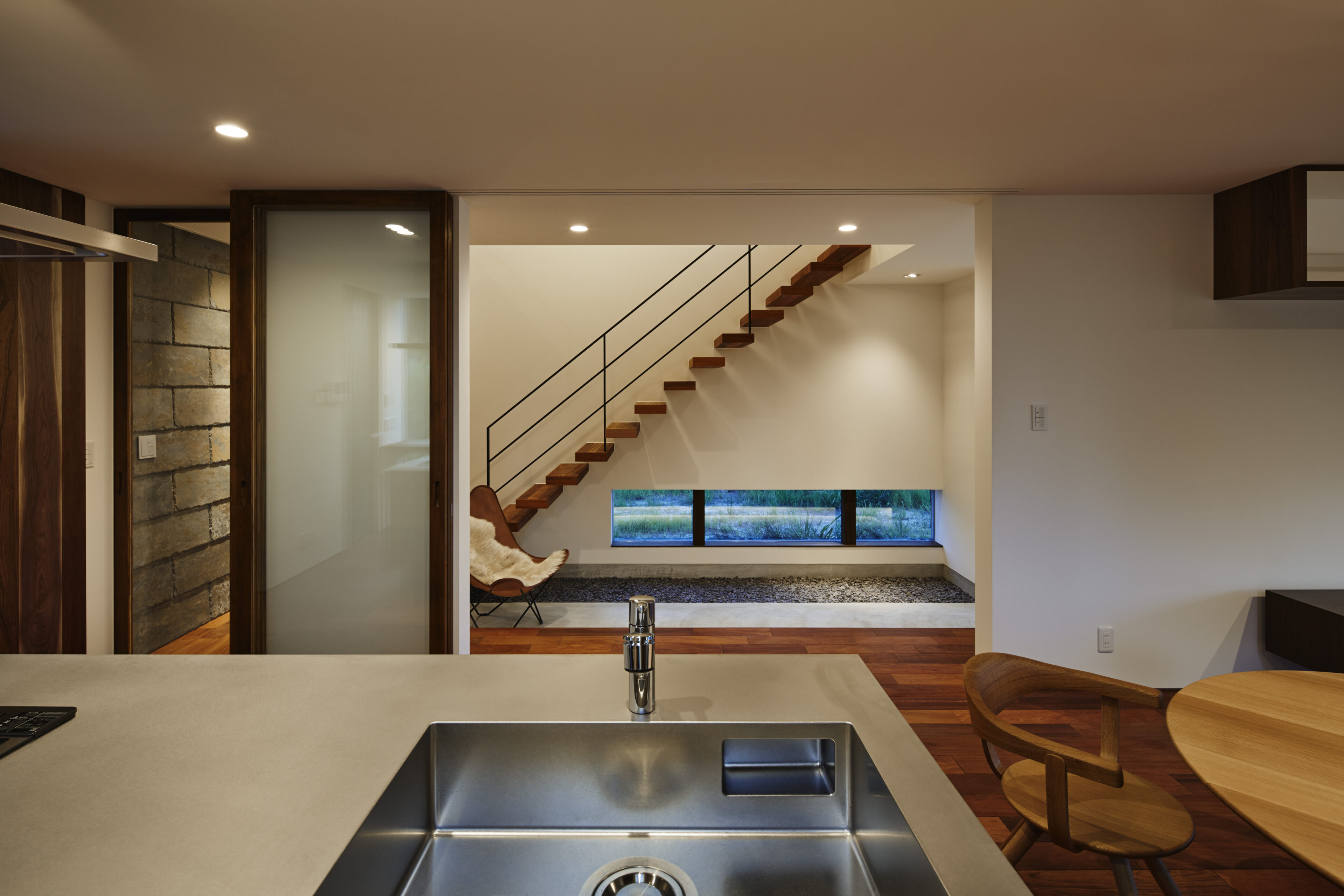
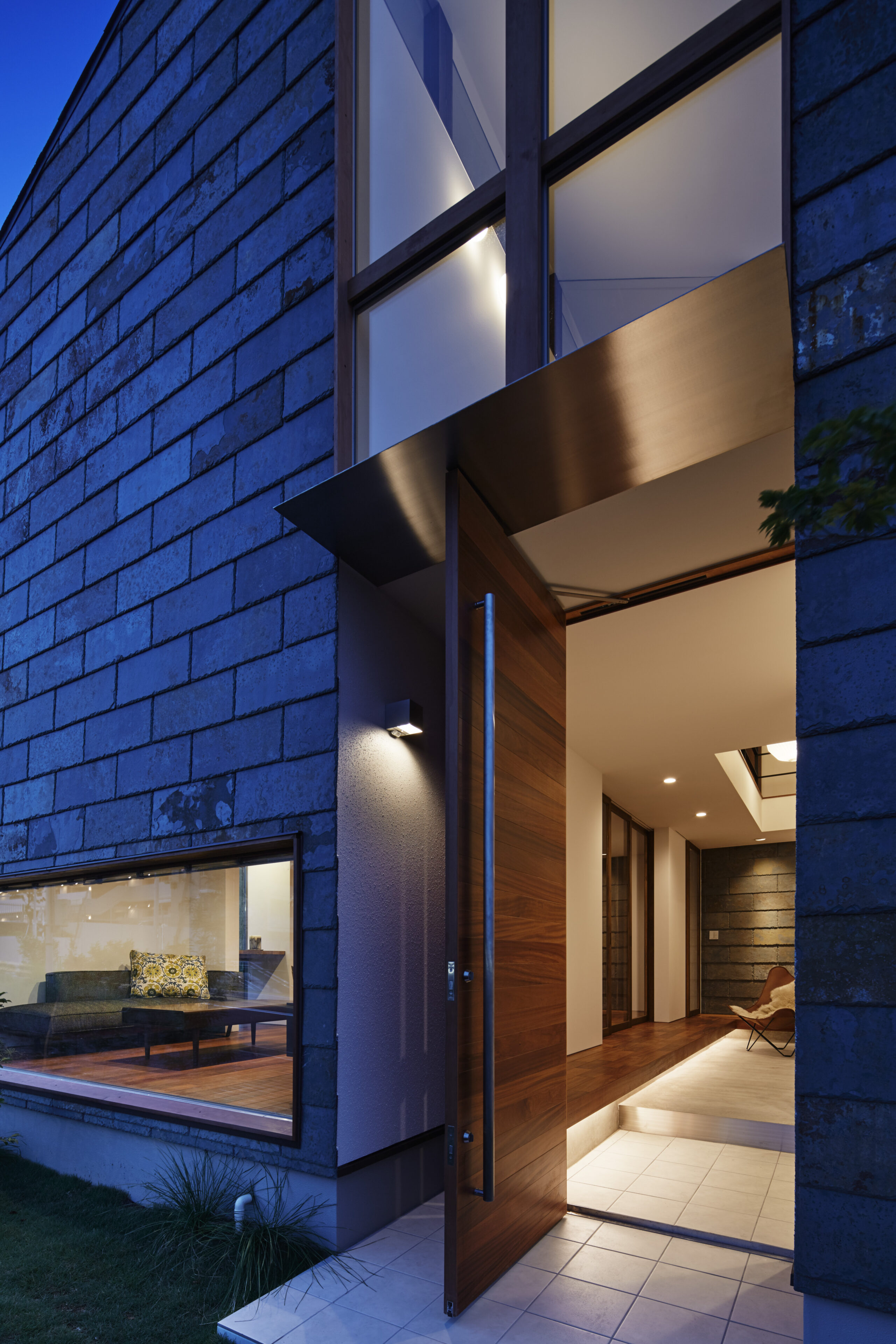
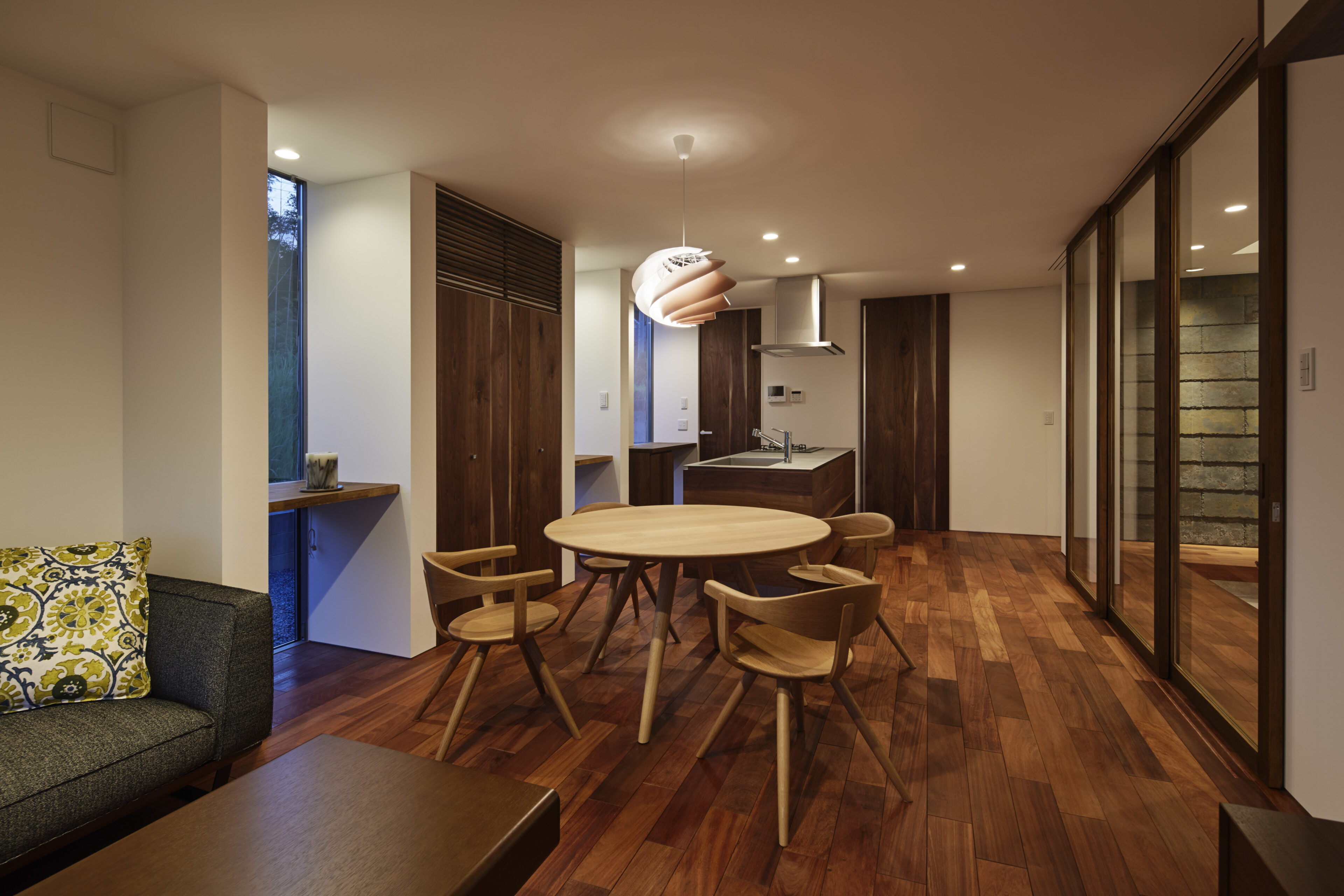
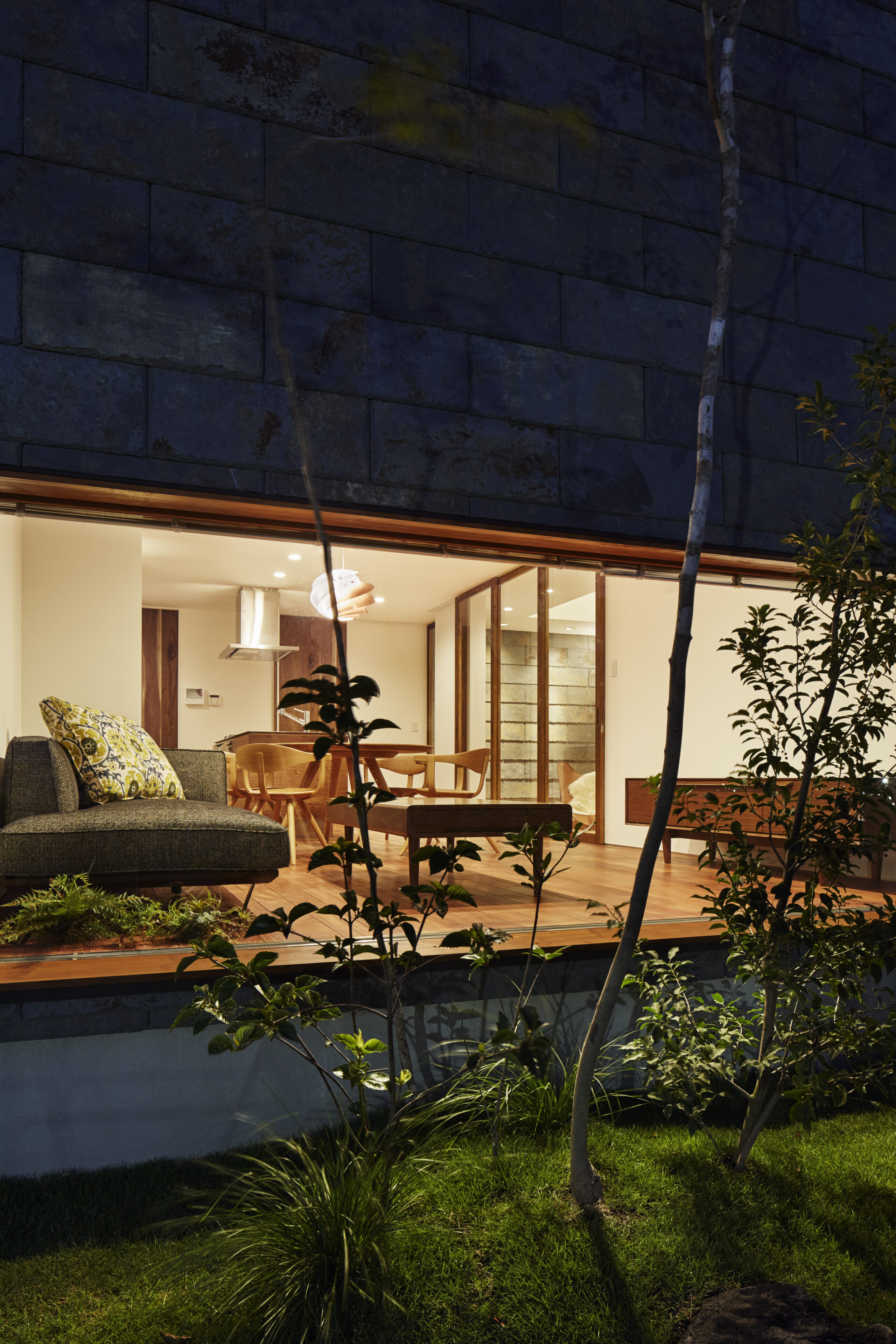

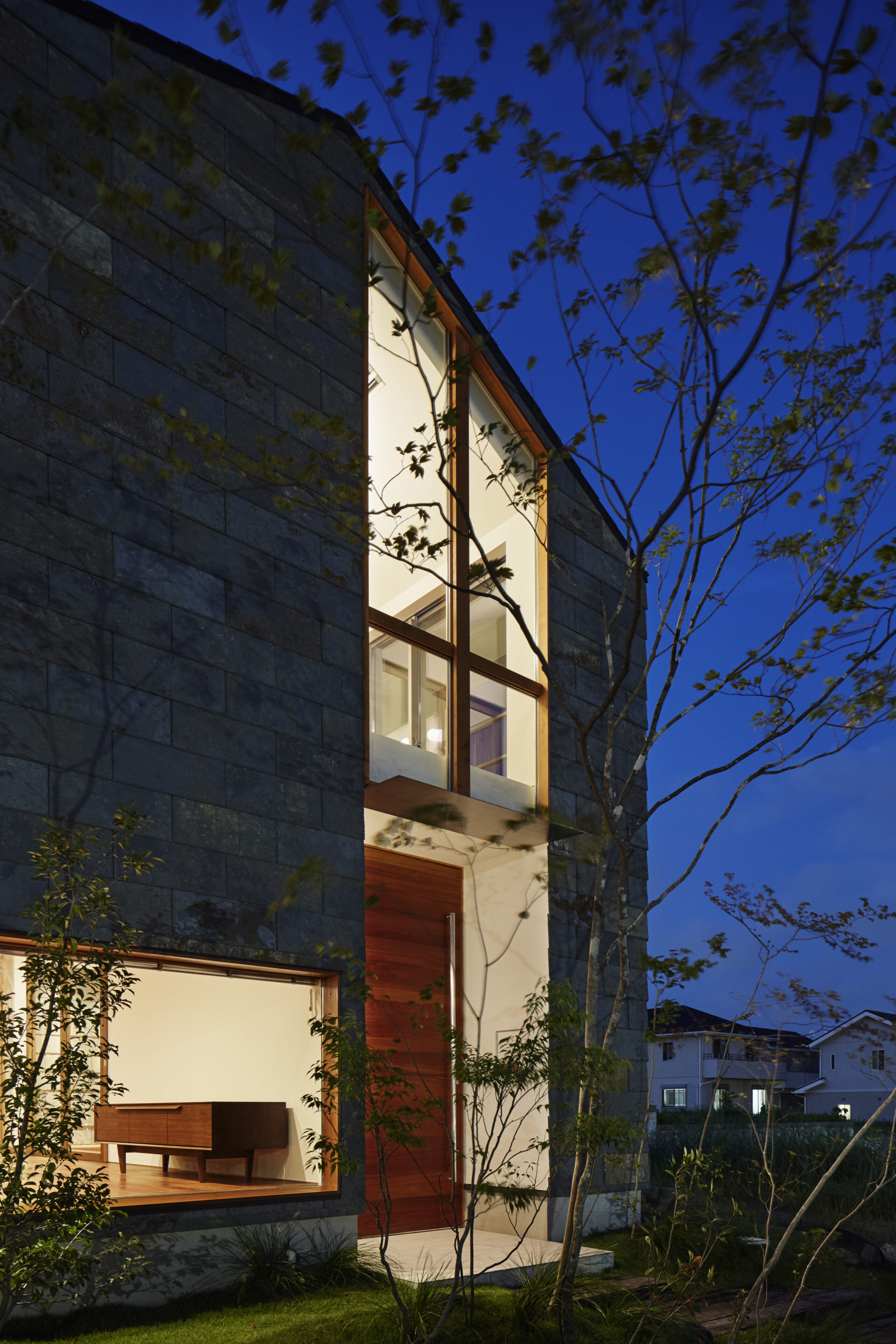
永く受け継がれる住宅には、必然的に街づくりの礎としての役割が担われる。街の成熟には「時間」と「美観」を要するが、その風景の一端である個々の住宅にもそれに見合う資質が求められる。FREIHEITは大量生産時代を終えた我が国における、これからの街づくりに向けた新たな意識の提案である。
A house to be inherited for a long time inevitably plays a role as a cornerstone of urban development. FREIHEIT is a new approach to urban development for the future in Japan, where the era of mass production has come to an end. FREIHEIT is a proposal for a new awareness toward the future of urban development in Japan, where the era of mass production has come to an end.
DATA
- 竣工 2015.09
- 建築地 愛知県名古屋市
- 用途 専用住宅
- 構造 木造2階建
- 撮影 Nacasa & Partners
- Completion 2015.09
- Building site Nagoya City, Aichi
- Principal use private residence
- Structure Wooden 2 stories
- Photo Nacasa & Partners
AWORD
- 2015 グッドデザイン賞 受賞




